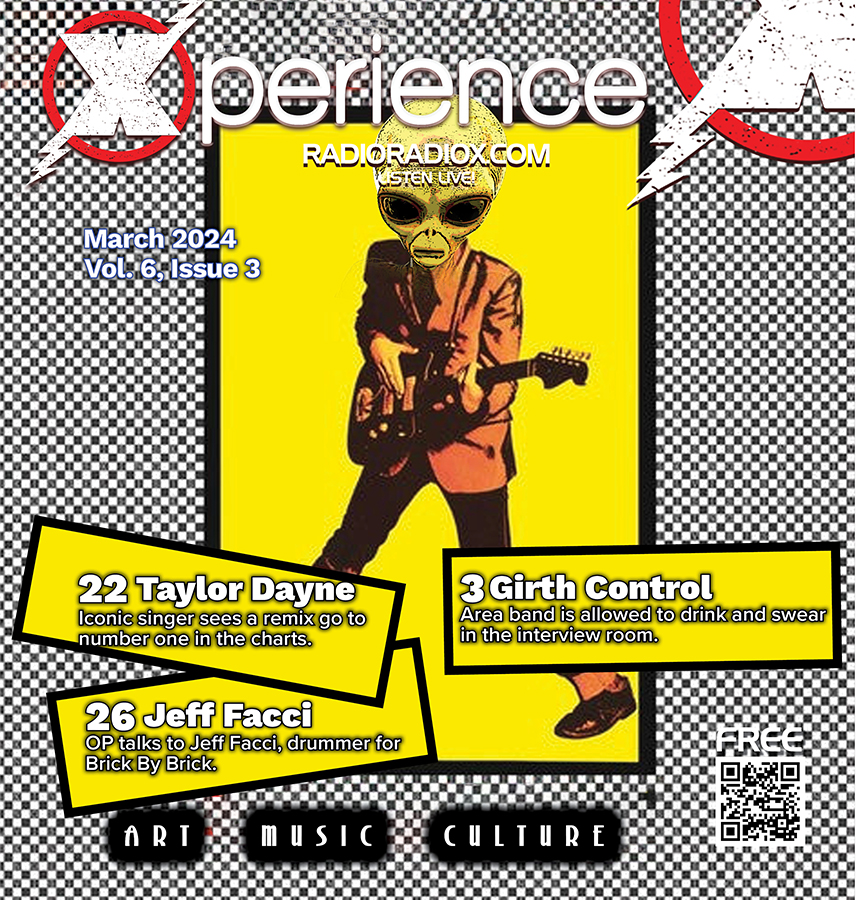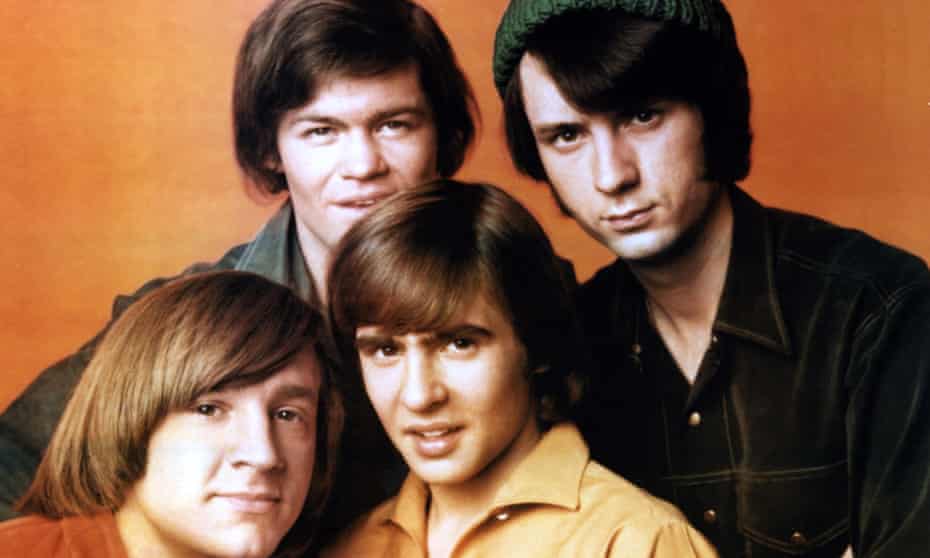A Feral Gentleman -By Ivan “Ivy” Effing-Ryotte
By Staff on February 7, 2022
 When Gregor Samsa woke up one morning from unsettling dreams, he found himself changed in his bed into a monstrous vermin. -“Metamorphosis,” Franz Kafka
When Gregor Samsa woke up one morning from unsettling dreams, he found himself changed in his bed into a monstrous vermin. -“Metamorphosis,” Franz Kafka
This is a tale of devolution and decline. Whether it is a tragedy or a comedy is yet to be determined, and is largely a matter of taste. Traditionally, tragedy is the realm of kings, queens and the high falutin’; and comedy, the domain of the plain, homely and just barely falutin’ at all. Pride and ambition bring down the aristocrat who mistakes himself for a god; ignorance knocks down the clown who mistakes one bedroom for another, or his romantic rival in a wig and wheezy falsetto for the hottest chick in the kingdom.
But I’m neither noble, nor entirely base. Like so many of us, I’m of middling status. I’m of middling age, height, weight, talents and accomplishments. I used to be a kind of someone and now I’m a regular, everyday kind of no one. On the one hand, I have no idea how I got here. I thought for sure that by this age and stage, I’d be a comfortably retired, grandly mustachioed, library-ensconced, smoking-jacketed, cognac-preserved Colonel Mustard kinda character annoying my children with tales of my fantastic exploits and the great wisdom they’d instilled in me. That is not the case. My child is annoyed, but instead with my mundane exploits and the bluster with which I relate them. World of difference.
On the other hand, I know exactly how I got here. I know how the world has changed; how institutions have crumbled; and which bridges I myself kindled. I know how a personal combination of brashness, naiveté, adventurousness, bone-idleness and an unwavering willingness to commit to a bit have taken me from the status of Public Voice to Customer Servant.
You see, I was, in days gone by, that most exalted of things, a published Cultural Critic. Not a journalist, mind you. I was not hampered by fact (as, nominally, journalists were in those days). I was an opinionator. Welcomed – indulged, even – in bars, clubs, theaters, restaurants for the promise of my favorable assessment. Oh, such heady days. Oh, such opinions I opined: on bands, plays, movies, meals. I interviewed the greats of my day – or those of the sort of greatness pinned at the intersection of upward and downward fortunes that made for a mid-week stopover between New York City and Boston: I talked to Nancy Sinatra about astrology and her dad; to Laurie Anderson about the Amish and McDonald’s; to Leif Garret about, well, mostly about David Cassidy; and to Nikki Sixx about why Nikki Sixx’s bodyguard had me in a headlock.
I watched successive waves of Albany bands crest, crash and recede against the hip indifference of the Capital’s audiences – even those audiences who were actively enjoying themselves. (Saratoga fans bopped and danced; Troy fans thrashed; Colonie fans threw horns; Delmar fans overdressed for VFW shows and worried about where to park their parents’ cars, but we’ll get to that. But, Albany fans, we were a tough audience. We were so spoiled back then.)
And I got paid to tell people what I thought about it all.
It couldn’t last. It didn’t last. Blame the Internet. I mean, why not? It’s more complex than that, and in reality had as much to do with short-sighted publishers, confused and skittish advertisers, shifting consumer priorities in the face of stagnant wages and diminishing economic expectations, and the warped demographic context of the evidently immortal Baby Boom generation – but what are we, historians, sociologists . . . journalists?! Let’s just blame the Internet and be done with it. Clubs closed, arts mags folded, artists hied to academia, a few bands split for more vital cities and the rest were absorbed into civil service and Gen Pop. It was an un-rapturous Rapture, an alt-culture Armageddon.
What were we critics to do? We pivoted. You’ve run across us, no doubt, here and there: in college communications offices, in the public-relations departments of health-insurance companies or making newsletters and running Twitter channels for area not-for-profit businesses. We found ways to write, for a while. Some of us still do. The opening, though. Those gigs were few and far between, usually poorly paid and often enough centered in the crosshairs of a website’s comments section – an area so foul as to make Dante pollute his pantaloni.
I served in a succession of those roles, as well. Well, “served” may be inexact. I served to the extent that the scorpion served as a passenger to the frog. You can take the boy out of opinionating but you can’t take the opinionating out of the boy, it turns out. I’ve been fired, laid off, let go, made redundant and hustled “the hell outta here” from all sorts of LinkedIn pastimes. In retrospect, it seems almost inevitable I would end up in my current gig, which draws upon many of the foundational aspects of my aforementioned life: culture, history, art, cuisine, storytelling, persuasion.
Yes. I’m a salesperson – a salesperson of that other foundation of the ink-stained opinionator’s existence: booze.
I am a salesperson of fine wines and spirits in one of the moderately upscale suburbs of our shared Tri-City stomping grounds. I don’t know if that’s absolutely apropos and or wholly nuts. I spend some significant time thinking about it. I’m thinking about thinking about it at you: inviting you into the ongoing egocentric investigation of this progression – is it a Hot Take, is it a Cold Case? I don’t know. It boasts a star-studded cast, though. As you’ve seen, I’m not above dropping the names of the famous. I will drop the names of the local characters, too, though they’ll be pseudonyms. I’m happy to tell you that the Pixies’ Black Francis’s press agent is completely wrong about how eager he is to do a phone interview at 9 AM Pacific Coast Time; but I’m not going to publicly shame Duck Hennessey of the local band Amuse Bouche by revealing that his band never once allowed his guitar to be audible in a live mix. I mean, I still sometimes have lunch with that guy.
So, this is no classical drama. It’s real life, give or take a few poetic liberties: some omissions, exaggerations, and some outright inventions; some sneaky score settling; some roundabout, present-day slander; some veiled, outdated but still juicy gossip. It’s a busy, digressive tale of artistic aspirations, trivia and distraction. It’s a tale mostly of failures – as most essentially honest tales must by necessity be. Is it a tragedy? Is it a comedy?
Steve Allen said, “Tragedy plus time equals comedy.” Mel Brooks said, “Tragedy is when I stub my toe. Comedy is when you fall in an open manhole and die.”
Kafka, wisest of them all, thought it was hysterically funny that Gregor Samsa woke after unsettled dreams as vermin.
And wise Kafka, funniest of them all, worked as a freaking claims manager for the Worker’s Accident Insurance Institute for the Kingdom of freaking Bohemia.





 RadioRadioX
RadioRadioX